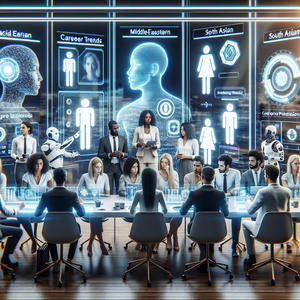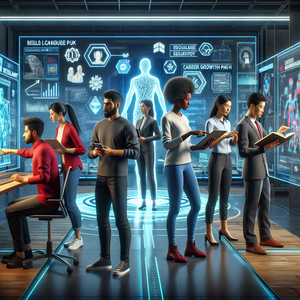
The Future of Work: Career Trends, Skills, and How to Thrive in 2030
The job market is undergoing a profound evolution, driven by rapid technological advancements, automation, artificial intelligence (AI), and shifting global priorities. This transformation is creating a dual reality: while some traditional roles are steadily declining, a new wave of careers is emerging, offering exciting opportunities for those who adapt. Reports like the World Economic Forum’s Future of Jobs Report 2025 and research from McKinsey confirm this trend, emphasizing that resilience, adaptability, and lifelong learning are now essential for anyone looking to stay competitive in the workforce.
Job Summaries:
AI and Machine Learning Specialist:
- AI and machine learning specialists are leading the charge in the Fourth Industrial Revolution, helping organizations harness the power of data to make smarter decisions.
- These professionals build and refine algorithms, develop predictive models, and create intelligent systems that improve over time.
- Their work is shaping the future of everything from personalized medicine to automated customer service in industries like healthcare, finance, or retail.
- Key skills include programming languages like Python and R, advanced knowledge of mathematics and statistics, and expertise in AI frameworks like TensorFlow and PyTorch.
- A master’s degree in AI, computer science, or related fields is often required, though certifications and bootcamps can also provide entry.
- AI-related roles are anticipated to grow by 39% by 2030.
Data Scientist:
- Data scientists are the architects of data-driven decision-making, turning raw information into actionable insights that help businesses innovate and thrive.
- Whether analyzing customer behavior, optimizing processes, or building predictive models, their work is invaluable in today’s digital economy.
- Key skills include statistical programming (Python, R), data visualization tools (Tableau, Power BI), and machine learning frameworks.
- Strong communication skills are essential for translating complex data into practical strategies.
- A degree in statistics, mathematics, or computer science is typical, though hands-on experience often outweighs formal education.
- Demand for data scientists is projected to grow by 36% by 2030.
Renewable Energy Technician:
- The global push for sustainability is fueling demand for renewable energy technicians, who install, maintain, and repair systems like wind turbines and solar panels.
- These professionals are critical to the transition to greener energy sources and the fight against climate change.
- Key skills include technical expertise in renewable energy systems, troubleshooting, and understanding environmental regulations.
- A technical diploma or certification in renewable energy or electrical engineering is typically required.
- The renewable energy sector is expected to grow by 52% by 2030.
Fintech Engineer:
- Fintech engineers are transforming how we manage money by developing solutions like mobile banking apps and blockchain-based payment platforms.
- These professionals blend technical expertise with financial acumen to create secure, user-friendly systems.
- Key skills include programming languages like Java, Python, and Solidity, as well as knowledge of cybersecurity and financial systems.
- A bachelor’s degree in computer science or finance is common, with growing emphasis on certifications in blockchain and digital payments.
- The fintech industry is expanding at a rate of 25% annually.
Cybersecurity Analyst:
- Cybersecurity analysts play a vital role in protecting sensitive data and systems from cyber threats.
- Their responsibilities include monitoring networks, identifying vulnerabilities, and implementing security protocols.
- Key skills include network security, ethical hacking, and tools like firewalls and intrusion detection systems.
- Analytical thinking and problem-solving skills are critical.
- A degree in cybersecurity, IT, or a related field is complemented by certifications like CISSP or CEH.
- Cybersecurity roles are expected to grow by 31% by 2030.
Declining Roles and Adaptation Strategies:
- The rise of automation and AI is rendering certain roles less relevant, such as postal clerks, bank tellers, and data entry clerks.
- Postal clerks have seen a 40% decline due to digital communication.
- Bank tellers face a 20% decline with online banking.
- Data entry clerks are experiencing a 30% decline due to AI-powered tools.
- To transition, workers can upskill through platforms like Coursera or LinkedIn Learning.
- Workers can pursue certifications like AWS or CEH.
- Networking for mentorship is a key adaptation strategy.
- Exploring adjacent roles is another strategy.
- For example, a bank teller could transition to fintech customer service by learning digital finance tools.
The future of work is one of both challenge and opportunity. While automation and AI are transforming traditional roles, they are also paving the way for innovative, high-demand careers. Workers who embrace lifelong learning, adapt to changing demands, and proactively upskill will be well-positioned to thrive in this new era. Whether you’re aspiring to become an AI specialist, renewable energy technician, or cybersecurity analyst, the key to success lies in embracing change and taking action today. The workforce of 2030 is being shaped now—are you ready to rise to the challenge?
Explore More Jobs
